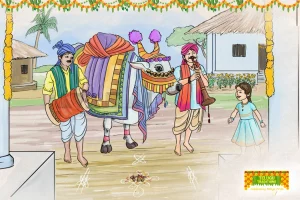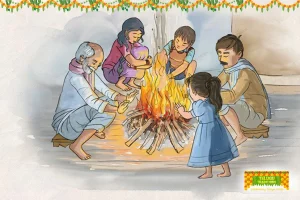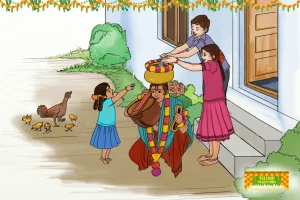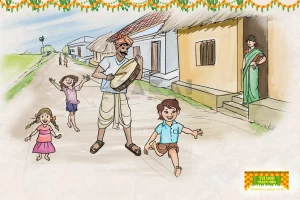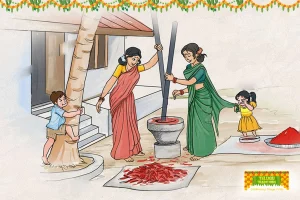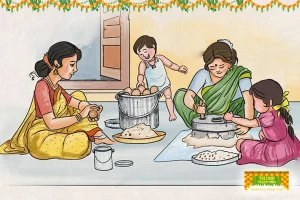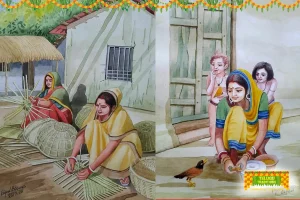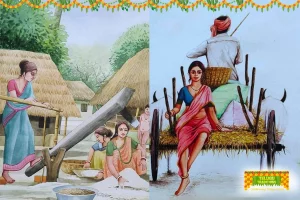India is a land of diverse cultures, and within its vast tapestry of traditions lies the vibrant and captivating world of Telugu traditions. Telugu-speaking people, primarily hailing from the states of Andhra Pradesh and Telangana, have a rich cultural heritage that dates back centuries. These traditions encompass various aspects of life, including festivals, music, dance, cuisine, and social customs, reflecting the unique identity and values of the Telugu community.
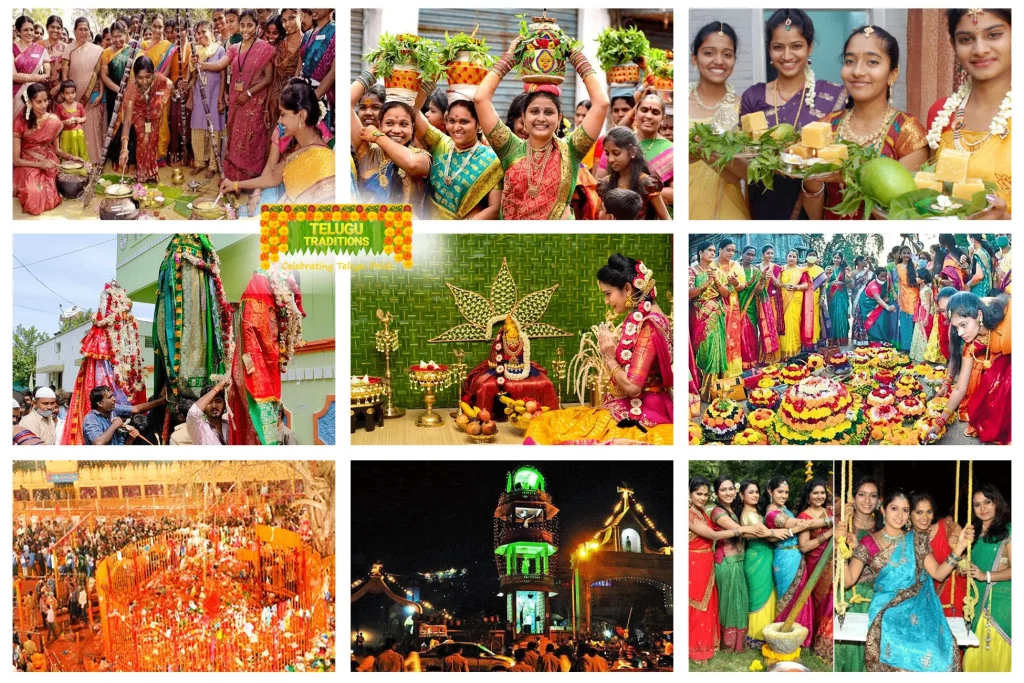
Festivals hold a sacred place within Telugu traditions, uniting communities and infusing life with vibrant colors and joyous celebrations. Sankranti, the cherished harvest festival, shines prominently among them. Occurring in mid-January, Sankranti symbolizes the sun’s transition into Capricorn, heralding the arrival of longer, warmer days and bidding farewell to winter. This festive occasion unites families in kite-flying, the preparation of traditional delicacies like Pongal, and the exchange of heartfelt sweets and gifts. Another revered festival, Bathukamma, pays homage to the divine goddess Gauri. Women adorn the atmosphere with mesmerizing floral towers, partaking in soulful singing and lively dancing. These festivals exude the true essence of Telugu traditions, radiating vibrancy, enthusiasm, and the spirit of togetherness.
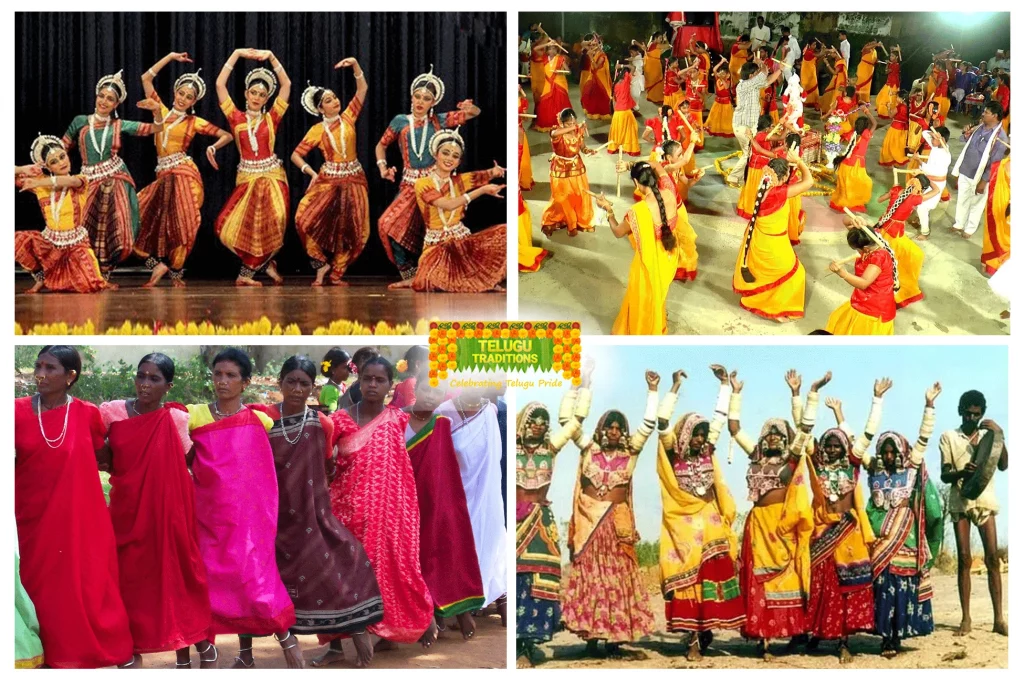
Music and dance, deeply ingrained in the tapestry of Telugu culture, serve as magnificent expressions of creativity and artistic brilliance, illuminating the richness and vibrancy of its people’s heritage. Classical music forms like Carnatic music have a strong presence, with illustrious composers and soulful singers emerging from the resplendent heritaged Telugu community. Rooted in the heartland of Andhra Pradesh, the captivating art form of Kuchipudi mesmerizes with its seamless fusion of elegance, emotive narratives, and mesmerizing footwork, epitomizing the timeless allure of classical dance. It has gained global recognition and continues to enchant audiences with its mesmerizing performances. Similarly, the folk dances like Dhimsa and Kolattam depict the joy, vigor, and storytelling elements of rural life, providing a glimpse into the cultural diversity within Telugu traditions.
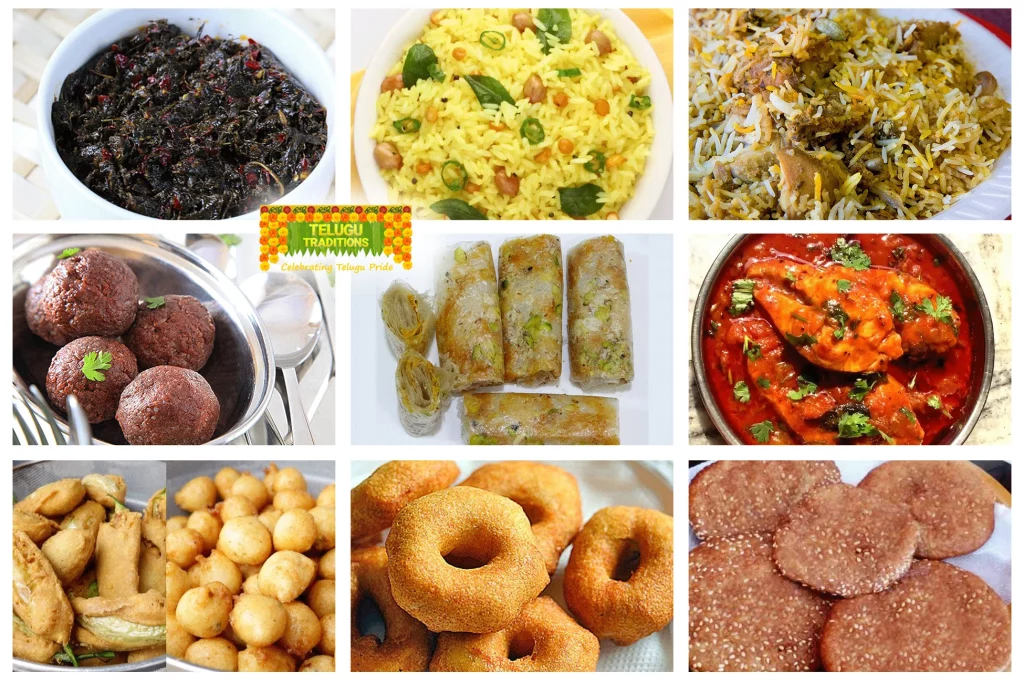
Telugu cuisine is a gastronomic delight that tantalizes the taste buds with its flavors and culinary techniques. Rice is a staple in Telugu households, and a traditional meal is incomplete without steaming hot rice served with a variety of curries, pickles, and chutneys. leaves chutney) and the legendary Hyderabadi Biryani gaining immense popularity. The famous Andhra-style cuisine is known for its spicy and tangy flavors, with dishes like the fiery Gongura pachadi (sorrel Special occasions are marked by the preparation of delectable sweets like the iconic Ariselu (rice flour and jaggery sweets) and the mouthwatering Pootharekulu (thin rice wafers filled with jaggery and dry fruits). Telugu cuisine reflects the love for food, where the artistry of spice blending intertwines harmoniously with the spirit of togetherness, creating a culinary experience that nourishes both body and soul.
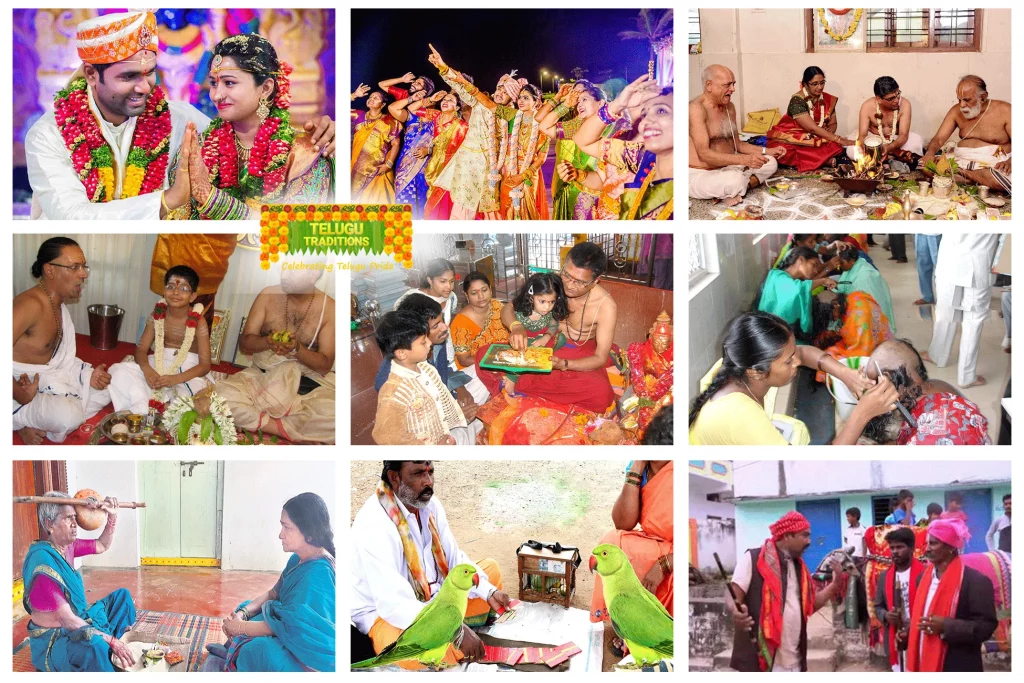
Steeped in time-honored traditions, Telugu customs gracefully weaves together the social values, beliefs, and a profound sense of community. Telugu Weddings are grand affairs, involving elaborate rituals and vibrant ceremonies that span across blissful days. From the tender exchange of jujube fruit garlands during the auspicious Muhurtham to the sacred binding of the Mangalsutra (sacred thread) and the joyous cascade rice and turmeric upon newlyweds during the Pelli Koduku and Pelli Kuthuru rituals, each custom symbolizes blessings, prosperity, and the cherished union of two families. Similarly, the practice of respecting elders, seeking their wisdom, and upholding familial bonds are deeply ingrained in Telugu society, emphasizing the importance of filial piety and an unwavering connection to ancestral heritage.
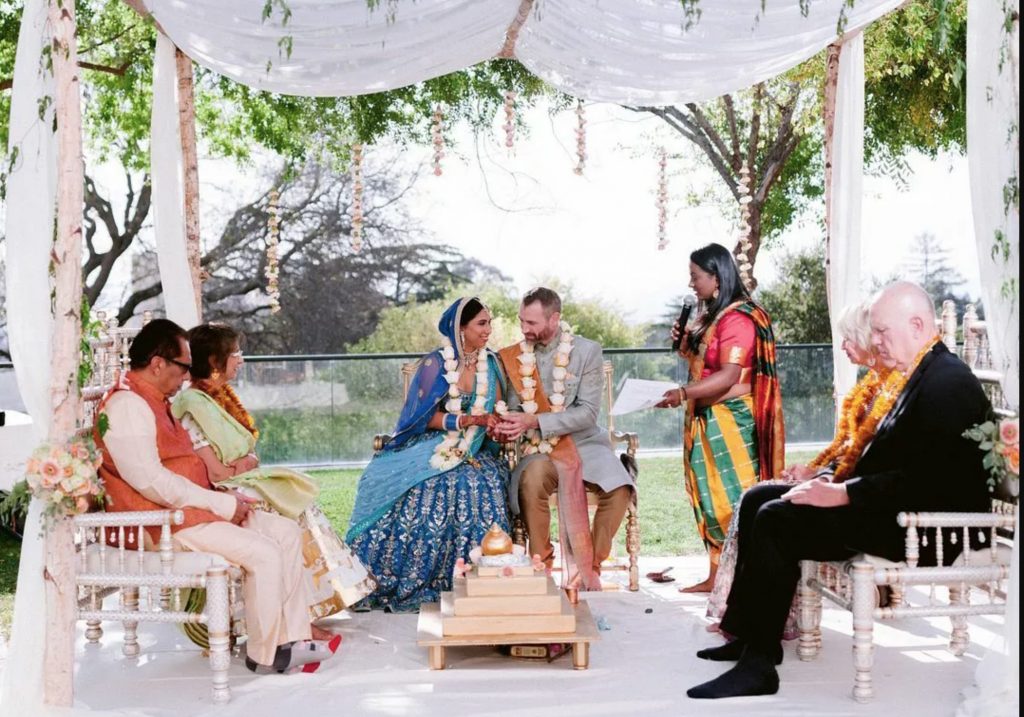
Telugu traditions are not confined to a bygone era; they continue to evolve and thrive in the modern world. Through the preservation of customs and the passing down of ancestral wisdom, the Telugu community ensures the longevity of its cultural heritage. Furthermore, Telugu cinema, popularly known as Tollywood, has emerged as a powerful medium to showcase the essence of Telugu traditions, reaching a global audience and creating an enduring impact on popular culture.
Telugu traditions encompass a rich tapestry of festivals, music, dance, cuisine, and social customs that define the cultural heritage of Telugu-speaking people. These traditions are a testament to the diversity and resilience of the community, as they adapt and evolve while holding on to their roots. Telugu traditions are a source of pride, a celebration of identity, and a reminder of the enduring spirit that unites people through shared customs and values.
Editors' Picks
-
1
 Akhanda Deeparadhana to Venkateswara Swamy | వెంకటేశ్వర స్వామికి అఖండ దీపారాధన || TeluguTraditions
02:09
Akhanda Deeparadhana to Venkateswara Swamy | వెంకటేశ్వర స్వామికి అఖండ దీపారాధన || TeluguTraditions
02:09
-
2
 Bhogi Pandlu Veduka | భోగి పండ్లు వేడుక | Hindu Sampradayalu | TeluguTraditions
03:26
Bhogi Pandlu Veduka | భోగి పండ్లు వేడుక | Hindu Sampradayalu | TeluguTraditions
03:26
-
3
 Mukhalu Kadiginchu Veduka | ముఖాలు కడిగించు వేడుక | TeluguTraditions
02:13
Mukhalu Kadiginchu Veduka | ముఖాలు కడిగించు వేడుక | TeluguTraditions
02:13
-
4
 Laaja Homam | లాజ హోమం | Telugu Marriage Traditions | TeluguTraditions
00:55
Laaja Homam | లాజ హోమం | Telugu Marriage Traditions | TeluguTraditions
00:55
-
5
 Gouri Pooja Vara Pooja | గౌరీ పూజ వర పూజ | Telugu Marriage Traditions | TeluguTraditions
02:10
Gouri Pooja Vara Pooja | గౌరీ పూజ వర పూజ | Telugu Marriage Traditions | TeluguTraditions
02:10
-
6
 Gothram Pravara | గోత్రం ప్రవర | Telugu Marriage Traditions | TeluguTraditions
02:28
Gothram Pravara | గోత్రం ప్రవర | Telugu Marriage Traditions | TeluguTraditions
02:28
-
7
 Gampalo Vadhuvu | గంపలో వధువు | Telugu Marriage Traditions | TeluguTraditions
02:00
Gampalo Vadhuvu | గంపలో వధువు | Telugu Marriage Traditions | TeluguTraditions
02:00
-
8
 Kallu Kadagadam | కాళ్ళు కడగడం | Telugu Marriage Traditions | TeluguTraditions
03:59
Kallu Kadagadam | కాళ్ళు కడగడం | Telugu Marriage Traditions | TeluguTraditions
03:59
-
9
 Mangalya Dharana | మాంగల్య ధారణ | Telugu Marriage Traditions | TeluguTraditions
04:16
Mangalya Dharana | మాంగల్య ధారణ | Telugu Marriage Traditions | TeluguTraditions
04:16
-
10
 Brahma Mudi | బ్రహ్మ ముడి | Telugu Marriage Traditions |TeluguTraditions
03:38
Brahma Mudi | బ్రహ్మ ముడి | Telugu Marriage Traditions |TeluguTraditions
03:38
-
11
 Pani Grahanam | పాణి గ్రహణం | Telugu Marriage Traditions | TeluguTraditions
02:57
Pani Grahanam | పాణి గ్రహణం | Telugu Marriage Traditions | TeluguTraditions
02:57
-
12
 Vadhuvu Kallaki Mattelu | వధువు కాళ్ళకి మట్టెలు | Telugu Marriage Traditions | TeluguTraditions
01:21
Vadhuvu Kallaki Mattelu | వధువు కాళ్ళకి మట్టెలు | Telugu Marriage Traditions | TeluguTraditions
01:21
-
13
 Ungaraalu Teeyadam | ఉంగరాలు తీయడం | Telugu Marriage Traditions | TeluguTraditions
01:21
Ungaraalu Teeyadam | ఉంగరాలు తీయడం | Telugu Marriage Traditions | TeluguTraditions
01:21
-
14
 Bommani Appaginta | బొమ్మని అప్పగింత | Telugu Marriage Traditions | TeluguTraditions
01:35
Bommani Appaginta | బొమ్మని అప్పగింత | Telugu Marriage Traditions | TeluguTraditions
01:35
-
15
 Appagintalu | అప్పగింతలు | Telugu Marriage Traditions | TeluguTraditions
02:47
Appagintalu | అప్పగింతలు | Telugu Marriage Traditions | TeluguTraditions
02:47
-
16
 Dhruvanakshatram | ధృవనక్షత్రం | Telugu Marriage Traditions | TeluguTraditions
01:24
Dhruvanakshatram | ధృవనక్షత్రం | Telugu Marriage Traditions | TeluguTraditions
01:24
-
17
 Arundati Nakshatra Darsanam | అరుంధతి నక్షత్ర దర్శనం | TeluguTraditions
01:44
Arundati Nakshatra Darsanam | అరుంధతి నక్షత్ర దర్శనం | TeluguTraditions
01:44
-
18
 Perantal Pettadam | పేరంటాలు పెట్టడం | Telugu Marriage Traditions | TeluguTraditions
01:12
Perantal Pettadam | పేరంటాలు పెట్టడం | Telugu Marriage Traditions | TeluguTraditions
01:12
-
19
 Mangalasotram | మంగళసూత్రం | Telugu Marriage Traditions | TeluguTraditions
04:12
Mangalasotram | మంగళసూత్రం | Telugu Marriage Traditions | TeluguTraditions
04:12
-
20
 Vodibeeyyam | ఓడిబియ్యం | Telugu Marriage Traditions | TeluguTraditions
03:20
Vodibeeyyam | ఓడిబియ్యం | Telugu Marriage Traditions | TeluguTraditions
03:20
-
21
 Bottu | బొట్టు | Telugu Marriage Traditions | TeluguTraditions
04:35
Bottu | బొట్టు | Telugu Marriage Traditions | TeluguTraditions
04:35
-
22
 Laying of Foundation Stone | శంఖుస్థాపన | Hindu Traditions | TeluguTraditions
04:43
Laying of Foundation Stone | శంఖుస్థాపన | Hindu Traditions | TeluguTraditions
04:43
-
23
 House Warming | గృహప్రవేశం | Hindu Traditions | TeluguTraditions
02:35
House Warming | గృహప్రవేశం | Hindu Traditions | TeluguTraditions
02:35
-
24
 Adde illu Gruhapravesam | అద్దె ఇల్లు గృహప్రవేశం | Hindu Traditions | TeluguTraditions
02:13
Adde illu Gruhapravesam | అద్దె ఇల్లు గృహప్రవేశం | Hindu Traditions | TeluguTraditions
02:13
-
25
 Bhogi Mantalu | భోగి మంటలు | Telugu Festivals | TeluguTraditions
01:05
Bhogi Mantalu | భోగి మంటలు | Telugu Festivals | TeluguTraditions
01:05
-
26
 Bommalakoluvu | బొమ్మలకొలువు | Telugu Festivals | TeluguTraditions
09:33
Bommalakoluvu | బొమ్మలకొలువు | Telugu Festivals | TeluguTraditions
09:33
-
27
 Gobbemmala Koluvu Veduka | గొబ్బెమ్మల కొలువు వేడుక | Telugu Festivals | TeluguTraditions
04:06
Gobbemmala Koluvu Veduka | గొబ్బెమ్మల కొలువు వేడుక | Telugu Festivals | TeluguTraditions
04:06
-
28
 Samkurumayya | సంకురుమయ్య | Telugu Festivals | TeluguTraditions
01:11
Samkurumayya | సంకురుమయ్య | Telugu Festivals | TeluguTraditions
01:11
-
29
 Muggulu | ముగ్గులు | Telugu Festivals | TeluguTraditions
03:36
Muggulu | ముగ్గులు | Telugu Festivals | TeluguTraditions
03:36
-
30
 Haridaasulu | హరిదాసులు | Telugu Festivals | TeluguTraditions
03:16
Haridaasulu | హరిదాసులు | Telugu Festivals | TeluguTraditions
03:16
-
31
 Tappetagullu | తప్పెటగుళ్లు | Telugu Festivals | TeluguTraditions
09:10
Tappetagullu | తప్పెటగుళ్లు | Telugu Festivals | TeluguTraditions
09:10
-
32
 Lambadi Dance | లంబాడీల నృత్యం | Telugu Traditional Dance | TeluguTraditions
03:59
Lambadi Dance | లంబాడీల నృత్యం | Telugu Traditional Dance | TeluguTraditions
03:59
-
33
 Dimsa Dance | ధింసా నృత్యం | Telugu Traditional Dance | TeluguTraditions
02:15
Dimsa Dance | ధింసా నృత్యం | Telugu Traditional Dance | TeluguTraditions
02:15
-
34
 Gussaadi Dance | గుస్సాడీ నృత్యం | Telugu Traditional Dance | TeluguTraditions
03:00
Gussaadi Dance | గుస్సాడీ నృత్యం | Telugu Traditional Dance | TeluguTraditions
03:00
-
35
 Horn Dance | కొమ్ము నృత్యం | Telugu Traditional Dance | TeluguTraditions
01:37
Horn Dance | కొమ్ము నృత్యం | Telugu Traditional Dance | TeluguTraditions
01:37
-
36
 Garaga Dance | గరగ నృత్యం | Telugu Traditional Dance | TeluguTraditions
04:13
Garaga Dance | గరగ నృత్యం | Telugu Traditional Dance | TeluguTraditions
04:13
-
37
 Jamukula Kathalu | జముకుల కథలు | TeluguTraditions
03:53
Jamukula Kathalu | జముకుల కథలు | TeluguTraditions
03:53
-
38
 Damdaari Dance | దండారి నృత్యం | Telugu Traditional Dance | TeluguTraditions
01:57
Damdaari Dance | దండారి నృత్యం | Telugu Traditional Dance | TeluguTraditions
01:57
-
39
 Perini Dance | పేరిణి నృత్యం | Telugu Traditional Dance | TeluguTraditions
02:22
Perini Dance | పేరిణి నృత్యం | Telugu Traditional Dance | TeluguTraditions
02:22
-
40
 Dappu Dance | డప్పు నృత్యం | Telugu Traditional Dance | TeluguTraditions
03:13
Dappu Dance | డప్పు నృత్యం | Telugu Traditional Dance | TeluguTraditions
03:13
-
41
 What is Bodrai | బొడ్రాయి అంటే ఏమిటి | Bodrai Festival | TeluguTraditions
02:25
What is Bodrai | బొడ్రాయి అంటే ఏమిటి | Bodrai Festival | TeluguTraditions
02:25
-
42
 Kuchipudi Dance | కూచిపూడి నృత్యం | Telugu Traditional Dance | TeluguTraditions
05:11
Kuchipudi Dance | కూచిపూడి నృత్యం | Telugu Traditional Dance | TeluguTraditions
05:11
-
43
 Devadaasi Dance | దేవదాసి నృత్యం | Telugu Traditional Dance | TeluguTraditions
03:28
Devadaasi Dance | దేవదాసి నృత్యం | Telugu Traditional Dance | TeluguTraditions
03:28
-
44
 Veeranaatyam Dance | వీరనాట్యం నృత్యం | Telugu Traditional Dance | TeluguTraditions
01:28
Veeranaatyam Dance | వీరనాట్యం నృత్యం | Telugu Traditional Dance | TeluguTraditions
01:28
-
45
 Kaashi Kathalu Cheppe Kaashi Kaavidi | కాశీ కథలు చెప్పే కాశీ కావడి | TeluguTraditions
03:40
Kaashi Kathalu Cheppe Kaashi Kaavidi | కాశీ కథలు చెప్పే కాశీ కావడి | TeluguTraditions
03:40
-
46
 Yakshagaanam Dance | యక్షగానం నృత్యం | Telugu Traditional Dance | TeluguTraditions
06:24
Yakshagaanam Dance | యక్షగానం నృత్యం | Telugu Traditional Dance | TeluguTraditions
06:24
-
47
 Buttabommalu | బుట్టబొమ్మలు | Telugu Traditional Dance | TeluguTraditions
04:18
Buttabommalu | బుట్టబొమ్మలు | Telugu Traditional Dance | TeluguTraditions
04:18
-
48
 Gangireddulaata | గంగిరెద్దులాట | Telugu Festivals | TeluguTraditions
06:30
Gangireddulaata | గంగిరెద్దులాట | Telugu Festivals | TeluguTraditions
06:30
-
49
 Edla Pandemulu | ఎడ్ల పందెములు | Telugu Festivals | TeluguTraditions
01:13
Edla Pandemulu | ఎడ్ల పందెములు | Telugu Festivals | TeluguTraditions
01:13
-
50
 Pottelu Pandemulu | పొట్టేలు పందెములు | Telugu Festivals | TeluguTraditions
01:23
Pottelu Pandemulu | పొట్టేలు పందెములు | Telugu Festivals | TeluguTraditions
01:23


